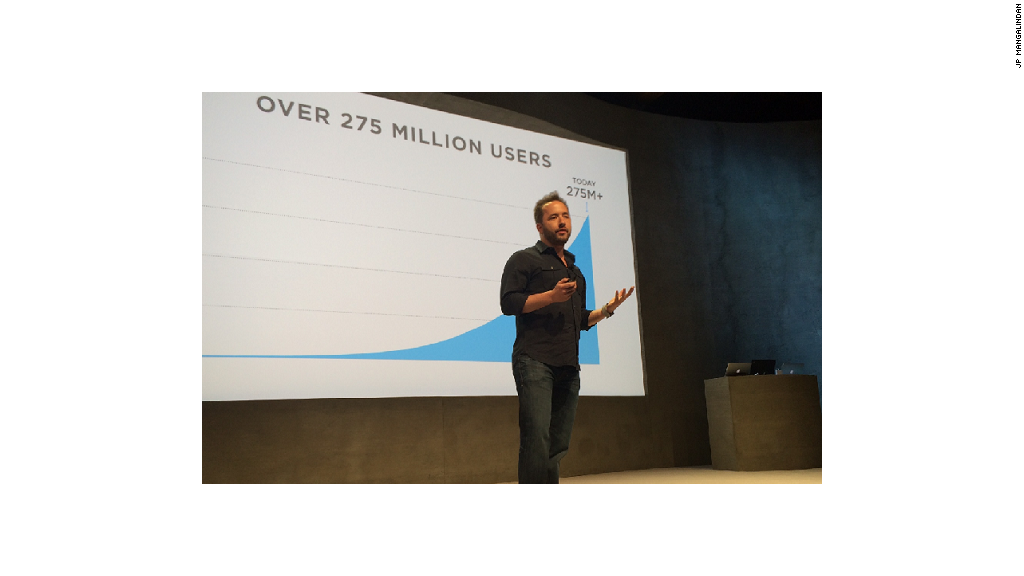
Not long after Dropbox launched, Apple threatened to kill it.
Steve Jobs summoned Dropbox CEO Drew Houston for a 15-minute meeting at Apple's headquarters in 2009 to discuss buying the cloud storage startup. But Houston wasn't interested in selling.
As Houston later recalled in one interview, Jobs began "taunting a little bit: 'Look, we're gonna have to come after you.' " In 2011, Apple did just that with the launch of iCloud.
Yet, Dropbox is still here. And nearly a decade after that ominous meeting, Dropbox is on the cusp of having one of the largest tech IPOs in recent years. It is looking to raise $648 million at a valuation of about $7.4 billion, according to a filing Monday.
When it does go public, Wall Street will have to adjust to a reality that Dropbox insiders have long contended with: Nearly every big tech company wants to kill it.
Related: Spotify's IPO is not like other IPOs
Apple (AAPL), Google (GOOGL), Microsoft (MSFT) and Amazon (AMZN) have all launched rival services for storing documents, photos and other files online. In its IPO paperwork, Dropbox said it only expects the "competition to intensify in the future."
The fierce competition is "definitely part of the noise you're always going to have," says Aaron Levie, CEO of Box (BOX), a similar service to Dropbox that focuses on business customers and went public in 2015. "Neither of us signed up for that necessarily. We created our companies before those other players [launched rival products]."
Houston, 35, has managed to weather that pressure to date by virtue of being a "very chill dude," according to Hadi Partovi, an early investor in Dropbox.
"Many others might be stressed out by having companies with a collective market cap of many trillion dollars competing with him," Partovi says. "Drew has always had a steady hand."
Not all investors are so chill about the growing number of rival services.
"Now, you don't need to go to Dropbox to do all the functions that they have," says Santosh Rao, who tracks Dropbox as head of research at Manhattan Venture Partners. "You can live without Dropbox."
That doesn't mean Dropbox is doomed, but Rao says the company's opportunity may be closer to Twitter (TWTR) than Facebook (FB). "It doesn't have the mass appeal of a Facebook, but I think in a niche market, it has its presence," he says.
Dropbox topped $1 billion in sales for the first time last year, and has worked to trim its losses by cutting costs, including certain office perks. But the company still lost more than $100 million in 2017.
By tech standards, though, those numbers aren't so bad. Unlike Snapchat (SNAP), Dropbox's losses aren't growing ahead of its IPO. And unlike Blue Apron (APRN), there's no new threat from a tech giant like Amazon at the last minute before it goes public.
What's more, analysts say Dropbox's $7 billion valuation is reasonable, certainly more so than the $10 billion valuation it had on the private market back in 2014.
"At first glance, it doesn't look like a train wreck," says Matt Kennedy, an analyst at Renaissance Capital, which manages IPO-focused exchange-traded funds. "It's not viewed as another Snap or another Blue Apron or some of the other consumer tech IPOs that haven't done so well."
But there may be more at stake with this IPO than the future of Dropbox. More blockbuster tech IPOs like Lyft, Uber and Airbnb are thought to be coming in the next couple years. Spotify recently filed to go public.
The Dropbox IPO, Kennedy says, "will set the tone."

